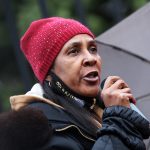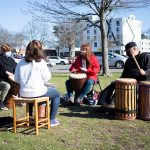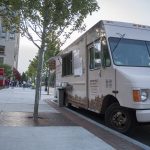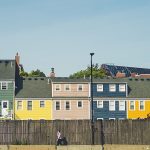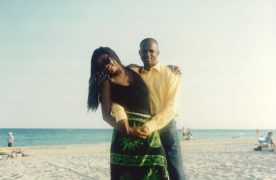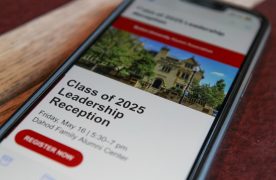Some 3,000 incoming freshmen will move onto Boston University’s Charles River Campus for the first time in August. However, without an in-person Orientation, many students in the Class of 2024 will arrive uninitiated to the college town’s culture.
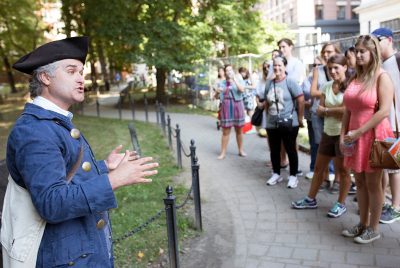
Peter Drummey, Stephen T. Riley Librarian at the Massachusetts Historical Society, has resided in and around Boston the entirety of his life. He said residents are aware of the city’s historical significance and prestige as a hub for education and medicine, which contributes to the Boston culture of pride.
“People who have lived in Boston their whole lives have this sense of being from here and a self-identification,” Drummey said. “Boston punches above its weight.”
Immigration, both internationally and from within the U.S., is a key theme of Boston’s cultural history, Drummey said. Newcomers are quickly absorbed into the city’s ethos.
“Bostonians have to discover the place they’re living in,” Drummey said. “You discover traces of things that were there before… what remains from earlier times.”
Emily Kovatch, experience manager at the Freedom Trail Foundation, said that compared to other American cities, Boston maintains an unparalleled connection to its history.
“This place is so unusually rich in historical events and historical places,” Kovatch said. “Important things happen in all sorts of cities, but Boston is really great about ways to interact with that history.”
Unlike other cities she’s called home, Kovatch said Boston’s history is fundamentally incorporated into residents’ lives. In Downtown Boston, new developments sit next to historic buildings, many of which still serve their original purposes.
The Boston Public Library has served as a place of congregation and study for more than 170 years. The Boston Symphony Orchestra has hosted musicians since its 1881 founding by a Civil War veteran. Central Boston’s Bell in Hand Tavern, which first opened in 1795, remains a high-energy weekend attraction.
Massachusetts was the first American colony to legalize slavery, according to Margaret Newell, author of Brethren by Nature: New England Indians, Colonists, and the Origins of American Slavery. Since then, she said, the city has grappled with ideological conflicts.
Today, a progressive Boston continues to host racial disparities in wealth.
Marlene Kim, an economics professor at the University of Massachusetts Boston, co-authored a 2015 report by the Federal Reserve Bank of Boston that found the median net worth of white Boston households was $247,500. For Black households, that figure was $8.
Kim said minorities are less likely to own homes, have pensions and receive inheritances.
“People of color have far less wealth than white Americans,” Kim said. “The racial disparities have persisted across the country, in wealth and also by income.”
These inequities may not be easily visible to newcomers, Kim said, including college students who account for a significant portion of Boston’s residents.
“I don’t know if the students will notice it,” Kim said, “because they will be in certain areas of Boston that will have more college students, that I think will be a bit more diverse.”
Kim said students should utilize their time in Boston to become educated on social injustices, especially given recent national events.
“They should observe and listen and learn,” Kim said. “I think this is an opportune time to have these discussions and to make these changes.”
In these times of unrest, Kovatch said, residents can engage with Boston’s history and make connections with the city by exploring on foot.
“I guarantee you there’s going to be half a dozen [historical] plaques within two blocks of your house,” Kovatch said. “That’s a great place to start, as well as look at the history in your own small neighborhood.”
Incoming freshmen should not feel intimidated by the weight of Boston’s history or the scale of its inequities, Kim said. Rather, they should be empowered by them.
“Learn about why living in the Back Bay gives you these opportunities that others don’t have, to try to make those changes,” Kim said. “We need young, energetic, thoughtful people to tackle these problems. So go do it. And don’t let fear stop you.”

